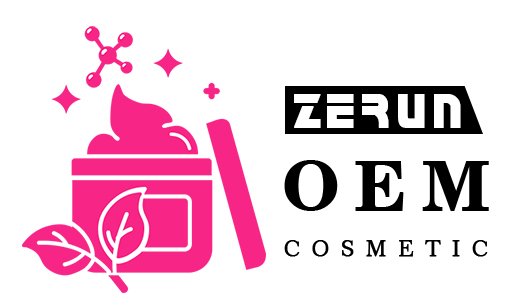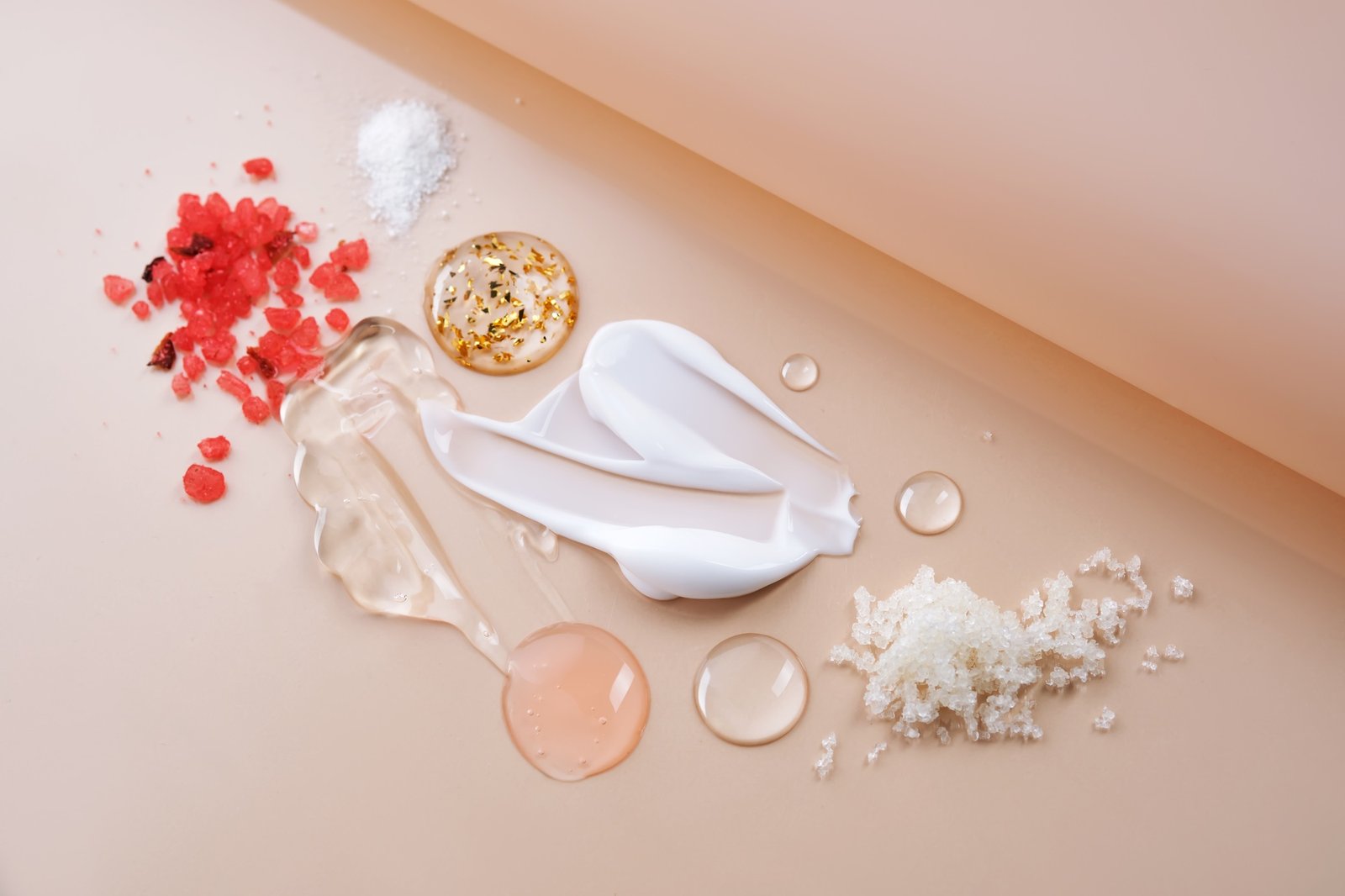Starting your own cosmetics company can be one of the most rewarding entrepreneurial ventures. The beauty industry is thriving, and with the right knowledge, strategy, and creativity, you can make your mark. But where do you begin? Whether you’re dreaming of launching a skincare line, makeup products, or a full cosmetics brand, this guide will walk you through every step, from setting up your business to navigating the legalities and marketing your brand.
Starting a cosmetics company involves strategic planning, choosing the right products, understanding financial requirements, and ensuring compliance with regulations. This guide outlines everything you need to know to launch your own cosmetics line successfully, from product creation to brand marketing and legal requirements.
Picture this: you’ve always had a passion for skincare, or maybe you’re obsessed with creating the perfect shade of lipstick. You’ve imagined creating a brand that not only embodies your passion but resonates with people around the world. But how do you go from dream to reality? It all begins with a solid plan. Let’s break it down step by step and uncover everything you need to know about starting a cosmetics company that will make a lasting impact.
What Do You Need to Start a Cosmetics Company?
Starting a cosmetics company involves more than just designing beautiful packaging and fun formulas. It requires understanding legalities, identifying your audience, and, most importantly, building a brand that connects with your consumers.
To start a cosmetics company, you need a clear business structure, relevant licenses, and a solid brand identity. Understanding your target audience and crafting a brand message that resonates with them is key to differentiating your company in the competitive beauty market.
- Business Structure: Choosing the right business structure is essential. Options include a sole proprietorship, LLC, or corporation. Most new cosmetics businesses opt for an LLC, as it offers liability protection and flexibility. Costs for registering an LLC can range from $50 to $500 depending on your state.
- Licenses and Registrations: Depending on where you’re located, you’ll need various licenses to sell cosmetics. In the U.S., while the FDA doesn’t require pre-market approval for cosmetics, your products must be safe for use. Registering your company with local authorities is also important for tax purposes.
- Target Audience: Defining your audience is crucial in tailoring your products and marketing. Are you creating luxury skincare for women aged 30-50, or trendy makeup for Gen Z? Understanding your audience will help you decide what products to offer, pricing strategies, and the best distribution channels.
- Brand Identity: Your brand identity includes everything from your logo to the message you want to convey. Think about what you want your brand to stand for: cruelty-free products, eco-friendly packaging, or luxurious formulations? A strong, consistent brand identity will help you stand out in the crowded beauty market.
How to Create a Business Plan for Your Cosmetics Company?
A business plan for a cosmetics company should include details about your niche, financial projections, and growth strategies. It will serve as a roadmap for your business and help you secure funding, attract partners, and guide your company’s direction.
Why Is a Business Plan Important for Your Cosmetics Company?
A business plan serves as the foundation for your cosmetics company, guiding you through every stage of the process, from product development to marketing and distribution. It can help you:
- Clarify your vision: A business plan forces you to define your goals and vision for your brand, which is critical for staying focused.
- Attract investors or funding: If you need external funding, a business plan is often required by investors or financial institutions. It demonstrates that you’ve thought through your business’s operations and financial needs.
- Measure your progress: A business plan provides benchmarks to track your growth, sales, and marketing success.
Key Components of a Cosmetics Business Plan
Creating an effective business plan for your cosmetics company involves several key components. Each section helps you map out how you’ll launch and grow your business while ensuring that all aspects of your operations are covered.
- Executive Summary
The executive summary is the first section of your business plan, but it’s often written last. This section summarizes your entire plan and gives an overview of your business. It should include:
- Your company’s mission statement and vision
- A brief description of your products (skin care, makeup, hair care, etc.)
- Your target market and customer base
- An overview of your company’s goals and financial projections
The executive summary should be concise yet informative, as it sets the tone for the rest of your plan.
- Company Description
This section should explain who you are, what your company does, and what makes your cosmetics brand unique. It should answer questions like:
- What products do you offer? (skin care, makeup, hair care)
- What sets your cosmetics company apart from competitors?
- What are your business goals?
Key points to include:
- The legal structure of your business (LLC, corporation, etc.)
- The history of your company, if applicable (How did you get started? Why are you passionate about cosmetics?)
- Any key partnerships or collaborations you have
- Market Research and Analysis
This section provides an in-depth look at your target market, including information about industry trends, customer demographics, and competitor analysis.
Key points to include:
- Industry trends: Discuss current trends in the cosmetics industry, such as the growing demand for organic, cruelty-free, and sustainable products.
- Target audience: Who is your ideal customer? Define your target demographic in terms of age, gender, income, lifestyle, and buying behavior.
- Competitive landscape: Research and analyze your competitors. Identify their strengths and weaknesses, and explain how your cosmetics brand will differentiate itself from others in the market.
- Products and Services
Here, you will describe the products you intend to sell and how they meet the needs of your target audience.
Key points to include:
- Detailed product descriptions: For each product, explain its purpose, key ingredients, and benefits.
- Pricing strategy: How much will you charge for each product, and why? Will you position your brand as premium, mid-range, or budget-friendly?
- Product development and sourcing: Discuss the process for creating and sourcing your products. Will you manufacture in-house, or will you work with third-party manufacturers?
- Marketing and Sales Strategy
The marketing and sales strategy outlines how you plan to reach your target audience and generate sales.
Key points to include:
- Branding: What is your brand’s story, message, and visual identity? How will you communicate this to your audience?
- Marketing tactics: Will you use social media, influencer partnerships, or traditional advertising to promote your products? How will you engage with customers online and offline?
- Sales strategy: How will you sell your products? Will you sell online through an e-commerce platform, in retail stores, or both? Do you plan to use direct-to-consumer, wholesale, or subscription-based models?
- Operational Plan
This section describes how your cosmetics business will operate on a day-to-day basis. It covers everything from production to delivery and customer service.
Key points to include:
- Supply chain management: How will you source raw materials, manufacture your products, and handle inventory?
- Production and manufacturing process: Will you make the products in-house or outsource production to a manufacturer?
- Shipping and delivery: How will you handle logistics and deliver products to customers?
- Customer service: Outline how you will handle customer inquiries, returns, and complaints.
- Financial Plan
Your financial plan outlines the financial goals and strategies for your cosmetics company. It helps you understand how much capital you need, what your expenses will be, and how you will achieve profitability.
Key points to include:
- Startup costs: Include the cost of product development, packaging, branding, marketing, and any initial manufacturing costs.
- Revenue projections: Estimate how much revenue you expect to generate in the first 3-5 years.
- Break-even analysis: When do you expect your business to become profitable?
- Funding: How will you finance your startup? Will you seek investors, apply for loans, or fund the business yourself?
How to Choose the Right Products for Your Cosmetics Line?
Selecting the right products for your cosmetics line involves understanding your target market, current beauty trends, and ensuring product safety and quality. Whether it’s skincare, makeup, or hair care, your product choices should reflect your brand’s values, fulfill customer needs, and align with your business goals for long-term success.
How to Understand Your Target Market’s Needs?
To choose the right products, understanding your target market is crucial. Identify their concerns, needs, and preferences, and tailor your offerings to meet these. This ensures that your products resonate with the audience and have a higher chance of success.
- Customer Demographics: Define your ideal customer—are they teenagers looking for trendy makeup, or adults seeking anti-aging skincare? Understanding your audience’s age, gender, income, and preferences will help guide product decisions.
- Market Research: Conduct surveys, analyze industry reports, and study competitors to determine which products are in demand. Use social media and customer reviews to gain insights into what people are currently looking for in beauty products.
- Pain Points: Identify common skincare or beauty problems your target audience faces. For example, sensitive skin, acne, or dryness may prompt the demand for soothing, gentle skincare lines. Offer products that solve these issues.
What Are the Most Popular and Trending Products in the Beauty Industry?
Stay informed about current beauty trends while keeping your brand’s identity intact. From clean beauty to sustainable products, identifying trending items can give your brand an edge in the market and attract consumers looking for the next big thing.
- Clean Beauty: The clean beauty movement, focusing on non-toxic, natural ingredients, continues to grow. Products like organic skincare and vegan makeup are highly sought after.
- Sustainable and Eco-friendly Products: Customers are increasingly drawn to brands that prioritize sustainability. From biodegradable packaging to ethically sourced ingredients, sustainability is a growing trend in cosmetics.
- Skincare Dominance: In recent years, skincare has overtaken makeup in terms of popularity. Products like serums, face masks, and moisturizers that target specific skin concerns (acne, anti-aging, hydration) are seeing massive growth in demand.
- Customization: Consumers are seeking personalized beauty products, such as foundations tailored to their skin tone or skincare routines tailored to individual needs. Customizable products are a growing trend that can differentiate your brand.
What Types of Products Are Best for Your Brand’s Identity?
Your product choices should reflect your brand’s core values and personality. If your brand is focused on luxury, premium makeup might be a good fit, while a brand focused on eco-friendly living may want to offer sustainable skincare products.
- Brand Mission and Vision: If your brand promotes natural beauty, offer products with minimal ingredients and an eco-friendly focus. If luxury is your niche, consider high-end skincare or exclusive makeup lines with a focus on elegance and quality.
- Packaging and Design: A sleek, sophisticated design would complement high-end luxury makeup, while vibrant, fun packaging might work for a younger audience. Make sure the product design matches your brand’s overall look and feel.
- Product Functionality and Innovation: Innovate by offering unique products that solve specific problems. For example, a skincare brand might introduce a product that combines multiple steps (like a 3-in-1 cleanser, toner, and moisturizer) to appeal to consumers looking for convenience.
How to Ensure Product Safety and Quality?
Before launching your cosmetics line, it’s crucial to ensure that your products meet safety and quality standards. High-quality products lead to better customer satisfaction and trust.
Ensure that your products meet safety standards and are tested for efficacy. Partnering with trusted manufacturers and conducting thorough quality control processes is essential to build credibility and maintain customer trust in your brand.
- Regulatory Compliance: In the U.S., the FDA regulates cosmetics to ensure safety. While FDA approval isn’t required for cosmetics, the agency enforces labeling and ingredient standards. Ensure your products meet these standards for safety and transparency.
- Product Testing: Conduct thorough testing for allergens, irritants, and overall effectiveness. Dermatological tests and stability tests help ensure that your products are safe and will perform as advertised.
- Sourcing Ingredients: Always source high-quality, safe ingredients from reputable suppliers. Look for certified organic ingredients, non-GMO, and cruelty-free certifications, as these are important to modern consumers.
How to Source Ingredients and Packaging for Your Products?
Sourcing high-quality ingredients and sustainable packaging is essential for your products’ success. Find suppliers who align with your brand’s values and ensure your packaging meets environmental standards while protecting the integrity of your products.
- Ingredient Suppliers: Partner with suppliers who provide high-quality ingredients, whether you are sourcing natural botanicals for skincare or pigments for makeup. Look for certifications like cruelty-free, organic, or vegan to align with consumer values.
- Packaging Suppliers: Packaging is an extension of your brand. Eco-friendly packaging, such as recyclable or biodegradable materials, is increasingly popular. Ensure your packaging is both aesthetically appealing and functional, protecting your product during shipping and usage.
- Sustainability: Sustainability matters to consumers, especially when it comes to cosmetics. Offering products with recyclable packaging or refillable containers shows that your brand is committed to environmental responsibility, which can help build brand loyalty.
How to Test and Launch New Products?
Once you’ve created your cosmetics, the next step is testing them and preparing for a successful product launch.
Test your products before launch to ensure quality and safety. Gathering feedback from a small group of customers or influencers can help refine your products and generate buzz before a full-scale launch.
- Sampling: Offer samples of your products to influencers or a selected group of customers to get feedback on the product’s effectiveness and appeal. This can help you refine the formula and packaging before launching.
- Pre-launch Campaigns: Build anticipation for your products by running pre-launch campaigns on social media or your website. You can offer early access or discounts for customers who sign up for updates.
- Official Launch: When it’s time to launch, have a clear strategy in place, including an online campaign, collaborations with influencers, and promotions to drive initial sales.
How to Find and Work with Manufacturers for Your Cosmetics?
Finding the right manufacturer involves selecting a reliable partner who understands your product needs and brand vision. Look for manufacturers that specialize in cosmetics and offer services like private labeling, formulation, and packaging to suit your business’s needs.
- Selecting a Manufacturer: Research manufacturers with experience in your desired product category. For example, if you’re creating skincare, look for manufacturers that specialize in skincare formulations. Be sure to request samples and assess their production capabilities before making a commitment.
- Private Labeling: Many manufacturers offer private labeling services, which allow you to brand their existing products as your own. This can be an excellent option if you want to minimize development costs and focus more on branding and marketing.
- Quality Control: Always perform thorough quality control checks to ensure your products meet safety and quality standards. Set clear expectations with your manufacturer regarding materials, production times, and testing procedures to avoid delays or issues.
What Are the Costs Involved in Starting a Cosmetics Business?
The costs of starting a cosmetics company vary, depending on factors like product development, packaging, manufacturing, and marketing. Initial costs can range from $10,000 to $50,000, with ongoing expenses for inventory, marketing, and distribution.
- Initial Startup Costs: Initial costs include product development, packaging, and initial manufacturing runs. For a small skincare line, expect to spend between $5,000 and $15,000 on developing formulas, sourcing ingredients, and packaging. For makeup, costs can be higher due to the complexity of production.
- Ongoing Costs: Once your business is running, you’ll have ongoing costs like inventory management, marketing, employee wages, and distribution. Marketing is essential to growing your customer base, and this can account for 20-30% of your operating budget.
- Managing Profits: Understanding your profit margins is crucial. For cosmetics, profit margins can range from 50% to 80%, depending on your product type and pricing strategy. A good rule of thumb is to price your products at 2-3 times the cost of production to ensure profitability.
How to Create a Marketing Strategy for Your Cosmetics Brand?
Creating an effective marketing strategy involves building an online presence, engaging with influencers, and using social media platforms to promote your products. Crafting a strong brand identity and running targeted campaigns will help your cosmetics brand grow.
- Building an Online Presence: Create an e-commerce website where customers can learn about your brand and easily purchase products. Utilize platforms like Instagram, TikTok, and YouTube to showcase your products, share tutorials, and engage with your audience.
- Influencer Partnerships: Collaborating with beauty influencers and bloggers can provide exposure to a larger audience. Influencers with followers in your target market can help you generate buzz and increase sales.
- Paid Advertising: Paid social media ads and Google Ads can be effective for targeting specific demographics. Use these tools to test your products and gain valuable insights into customer behavior and preferences.
How to Launch and Scale Your Cosmetics Business?
Once you’ve created your products and established a brand, it’s time to launch your business and scale it for growth.
Launching your cosmetics business requires a clear strategy and focus on customer feedback. Once your brand gains traction, scaling involves expanding your product range, increasing production capacity, and entering new markets.
- Launching Your Business: Plan a launch event or online campaign to generate excitement. Offer discounts or giveaways to attract your first customers and build momentum.
- Customer Feedback: Use customer feedback to refine your products and improve your offerings. Engage with customers on social media or via email surveys to understand their needs and expectations.
- Scaling Your Business: As demand grows, consider expanding your product line or reaching new markets. You may also need to invest in better production facilities or larger inventory to keep up with demand.
Which Legal Requirements Should You Know Before Starting a Cosmetics Company?
Compliance with FDA regulations, ensuring product safety, and protecting your intellectual property are essential for a successful cosmetics business. Understanding labeling, testing, and trademarking your brand will help safeguard your business.
- FDA Approval: While the FDA doesn’t require pre-market approval for cosmetics, your products must be safe and properly labeled. Ensure your ingredients are not prohibited and that your products meet the required safety standards.
- Product Testing: You should conduct thorough testing to ensure that your products are safe for consumers. Dermatological testing, allergy testing, and stability testing are essential for skincare and makeup products.
- Trademark Protection: Trademark your logo and brand name to protect your intellectual property. This ensures that no one else can legally use your brand identity or products.
Conclusion
Starting your own cosmetics company can be a fulfilling and profitable venture with the right planning and execution. From product development to branding and marketing, each step requires careful consideration. Whether you’re just getting started or looking to grow your existing brand, Zerun cosmetic can help you bring your cosmetic vision to life. Contact us today for expert consultation and to get started on creating your own private-label products!





